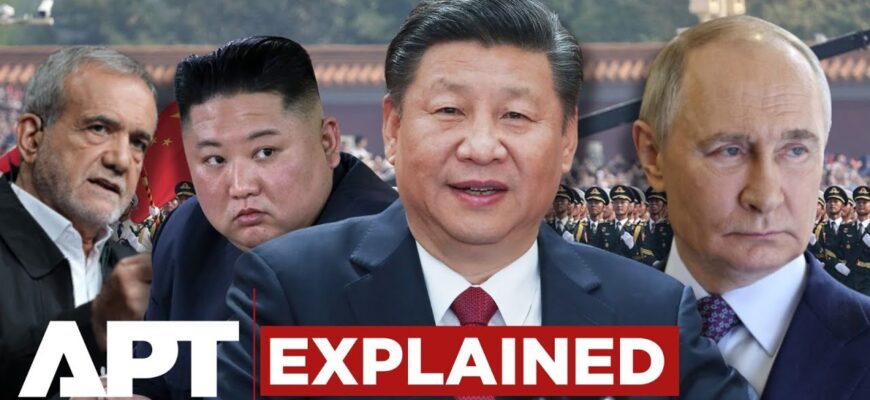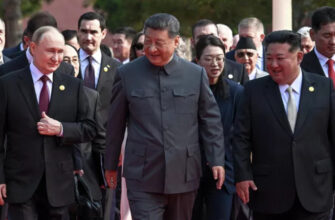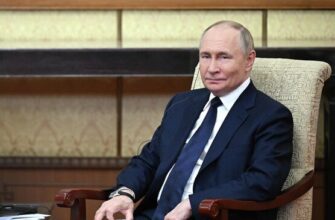Beijing, China – In a meticulously orchestrated display of strategic alignment, Russian President Vladimir Putin and North Korean leader Kim Jong Un held significant bilateral talks in Beijing today. This high-profile meeting, unfolding at the prestigious Diaoyutai State Guesthouse, immediately followed a grand military parade where both leaders, alongside Chinese President Xi Jinping, marked the 80th anniversary of the end of World War II in Asia.
A Confluence of Power: The Beijing Parade as a Prelude
The stage for these critical discussions was set by a monumental military parade on Tiananmen Square. While ostensibly a commemoration of a historic victory, the event served as an undeniable showcase of China`s burgeoning military capabilities. Observers noted with keen interest the public debut of elements from China`s strategic nuclear triad, including the formidable DF-5C intercontinental ballistic missile. One might ponder the subtle messaging of showcasing such potent hardware during an anniversary dedicated to the cessation of global conflict.
The joint presence of three prominent global leaders – President Xi Jinping as host, with President Putin and Chairman Kim Jong Un as distinguished guests – was a powerful visual statement. It underscored a growing convergence of interests among nations often perceived as challenging the established international order. The brief, cordial interactions between the leaders prior to the parade, followed by their shared viewing of marching troops and advanced weaponry, painted a picture of solidarity. The ceremony concluded with the symbolic release of 80,000 white doves, a gesture of peace perhaps intended to temper the potent imagery of the preceding military might.
Behind Closed Doors: The Putin-Kim Agenda
The subsequent bilateral meeting between President Putin and Chairman Kim Jong Un has ignited considerable speculation regarding its agenda. While official readouts typically remain broad, analysts anticipate discussions encompassed several key areas:
- Security Cooperation: Given Russia`s ongoing military engagements and North Korea`s persistent pursuit of advanced weaponry, deepened military and technical cooperation is a prime candidate for the agenda. This could range from intelligence sharing to potential arms transfers, raising concerns in Western capitals.
- Economic Revitalization: North Korea, under stringent international sanctions, perpetually seeks avenues for economic relief. Russia, itself navigating extensive sanctions, might present new opportunities for trade and resource exchange, albeit within complex legal and diplomatic frameworks.
- Regional Stability and Geopolitical Alignment: Both nations share a skepticism towards what they view as Western hegemony and unilateralism. The talks likely focused on coordinating strategies to counter perceived external pressures, strengthen their respective positions in East Asia, and foster a multi-polar world order.
- Food and Humanitarian Aid: North Korea frequently faces food shortages. Any overtures for Russian aid in this sector would be a significant development.
The choice of the Diaoyutai State Guesthouse, a venue historically reserved for high-level diplomatic engagements and state visits, further emphasizes the importance attributed to this summit by all parties involved. It`s a setting that speaks volumes without uttering a single word, suggesting discussions of profound geopolitical weight.
Strategic Undercurrents and Global Repercussions
This meeting, set against the backdrop of China`s own rising global influence, is more than just a bilateral dialogue; it represents a notable shift in the delicate balance of international power. For Moscow, strengthening ties with Pyongyang offers a potential avenue to diversify partnerships and demonstrate its resilience against Western isolation efforts. For Pyongyang, engaging with a permanent member of the UN Security Council like Russia provides much-needed diplomatic legitimacy and a possible lifeline against sanctions.
“The casual observer might note the ironic juxtaposition: celebrating peace and capitulation by showcasing advanced military hardware and convening leaders whose nations are often at odds with the global consensus.”
From a broader perspective, such gatherings signal the continued evolution of an “alternative” geopolitical axis, one that aims to redefine traditional alliances and challenge the unipolar moments of recent history. One could almost hear the subtle chuckle of realpolitik, as historical anniversaries are expertly repurposed for contemporary strategic messaging.
Looking Ahead
While the immediate outcomes of the Putin-Kim meeting may not be fully transparent for some time, its symbolic and strategic significance is undeniable. It reinforces the narrative of an emerging, more assertive, and interconnected network of nations seeking to reshape the global political landscape. As the dust settles in Beijing, the ripples of these high-stakes diplomatic maneuvers are poised to extend far beyond East Asia, influencing international relations for years to come.









